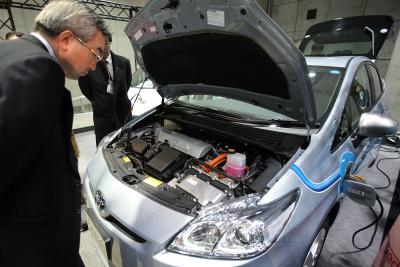
In business, macro-environmental factors are events or conditions over which a company does not have control. Toyota faced many challenges bringing the Prius line to the market, including governmental regulations, cultural resistance, natural disaster and economic factors. Toyota overcame all of these factors and brought an innovative new product to the market.
The Toyota Prius is manufactured exclusively in Japan. When an earthquake struck Japan on March 11, 2011, Toyota was forced to shut down many of its manufacturing facilities, including those that were building the Prius. Toyota had to deal with the loss of manufacturing capability, and ensure the needs of its employees were met. Additionally, Toyota is a major economic a social force in the nation, so the people of Japan expected Toyota to take a leading role in helping the nation recover.
Toyota automotive products, including Prius, have experienced a number of serious issues with braking systems. Although mechanical and software issues with braking systems are well within the ability of Toyota to fix, the cultural damage to Toyota's image is not entirely within the company's power to control. Over the years, Toyota has developed a loyal customer base because of public perception of product quality. The continued problems with an essential safety issue such as vehicle brakes has the potential to erode customer confidence in the quality of Toyota products.
Americans are committed to the freedom of travel that gasoline- and diesel-powered automobiles provide. Vehicles powered with fossil fuels provide the ability to travel long distances at freeway speeds. Electric-powered vehicles such as the Prius are challenging the preeminence of gasoline- and diesel-powered vehicles. Toyota cannot directly control the image of electric-powered vehicles in people's minds, but the company may develop advertising and marketing campaigns that initiate discussions leading to a greater level of acceptance in society as a whole.
Toyota announced the new Prius with plug-in recharging capability will become available in 14 states beginning in spring 2012. This car will not be practical for the average driver unless there is a place to plug it in at the apartment complex, place of work and other areas around town. Making the required infrastructure available requires action by zoning boards, property owners and business owners. The required infrastructure changes represent macro-environmental factors that are beyond the control of Toyota.